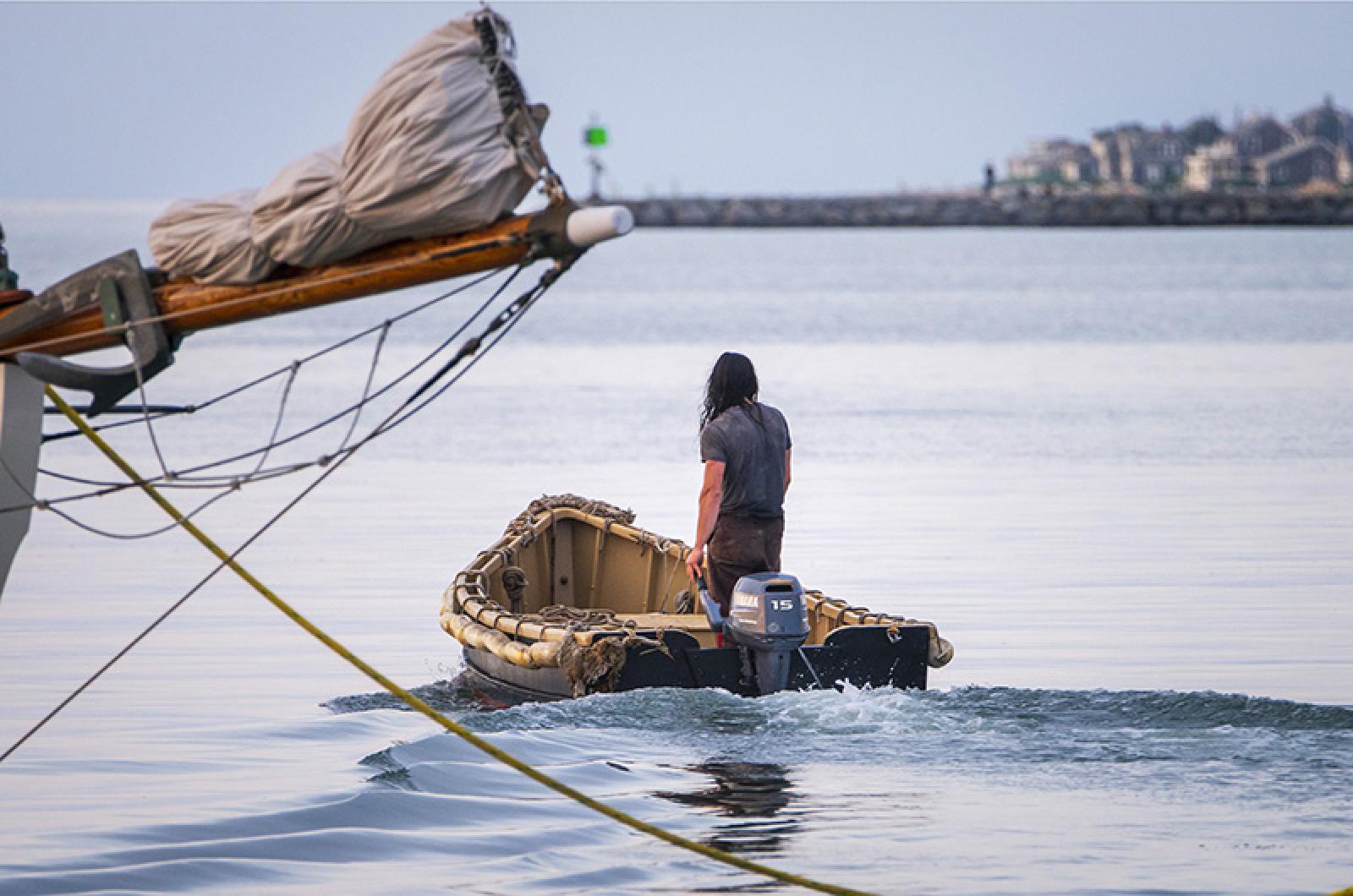Selected Gazette Nature Writings from 2018
February
A seal was the lone occupant at Lighthouse Beach in Edgartown the other day, soaking up a small bit of late winter warmth as a few rays of sun slanted through gray clouds. Out of the lee, the wind off the water had a sharp bite. Engraved cobblestones around the base of the lighthouse that serve as a memorial to children who have died were strewn with shells and sand.
There was something permanent and yet fleeting about the tableau.
March
Pity the March snowstorm, unloved in all corners. Nearly everyone dreams of a white Christmas and takes what damages arrive with a shrug of good cheer. But spring fever has the hots for new life, one not covered in white and separated by gloved hands and clunky boots.
April
There’s snow on the daffodils, but lately the sunny bulbs appear to be winning the race for spring over winter.
The lilac in the dooryard is wearing fat buds, and potted chives are staging a brave comeback.
The winter coats live in a halfway house these days, somewhere between the closet and the box where they are stored for summer. They stand as the symbol of the Vineyard’s spring mood: April just hasn’t quite been herself this year.
May
Cinco de Mayo is a week away and Mother’s Day two weeks hence. But the big ticket lies in wait a mere four weeks away from today: the start of Memorial Day weekend. Just the sight of those three words sets the heart and mind spinning.
The turtle ponders ducking back into its shell, but just for a moment.
July
On the farm fields that ring the Polly Hill Arboretum in West Tisbury, the hay has been cut and baled save two fields still thick with thigh-high grasses and vetch that is a riot of purple blossoms. The pastoral scene evokes memories of the homesteading era on the Island when a fresh crop of young back-to-the-landers built their own houses, grew their own food and raised their young families. That was nearly half a century ago.
August
Dry fields gone dormant from too little rain, dotted with black-eyed Susans and wild carrot. Schools of black sea bass running thick in the deep water of Vineyard Sound. Sunsets, glorious sunsets. Ferries running at capacity for cars, dogs, bikes and people. A once-sleepy airport redefined as a traffic jam.
These are the benchmarks of early August as the Island hits the halfway point in the season.
September
The weather has been nonstop summery even past August this year, with ocean water so warm there will be swimming until October. Beach towels are faded from so much time on the clothesline, bathing suits have lost their elastic and the flipflops may or may not last another year. But there are noticeable signs of the changing season. Swamp maples are showing their first scarlet leaves. At Island farmstands crates of late summer tomatoes invite a weekend of roasting, canning and freezing. Summer is on the wing now.
October
Coastal areas of Martha’s Vineyard have been alive with tree swallows in recent days and weeks — thousands of them, chattering in the treetops, swooping and diving across open fields.
Set against the golden late-day light and a vast blue sky, they are a stunning sight with their aerial acrobatics as they snatch bugs from the air.
November
Found in a remote farm field last week: a single white aster bravely blooming in the tawny tall grass, as if winter would never come.
But it will of course, and already the Island has made the hard turn into late November with the last leaves off the trees and bare branches silhouetted against a sky streaked with clouds. Gardens are put to bed, firewood is stacked in sheds, storm doors and windows are up. Bay scallopers are out on the ponds getting what they can in a poor year for harvest.
December
A crescent moon hung in the inky December sky this week surrounded by twinkling winter constellations.
Star gazing at night has been spectacular this month in the still, frigid air, the ground sparkling with frost. On a recent morning, early risers were treated to a dusting of ocean-effect snow that gave a light coating to farm fields, roads and car windshields. Then by lunchtime the magic was gone.




Comments
Comment policy »